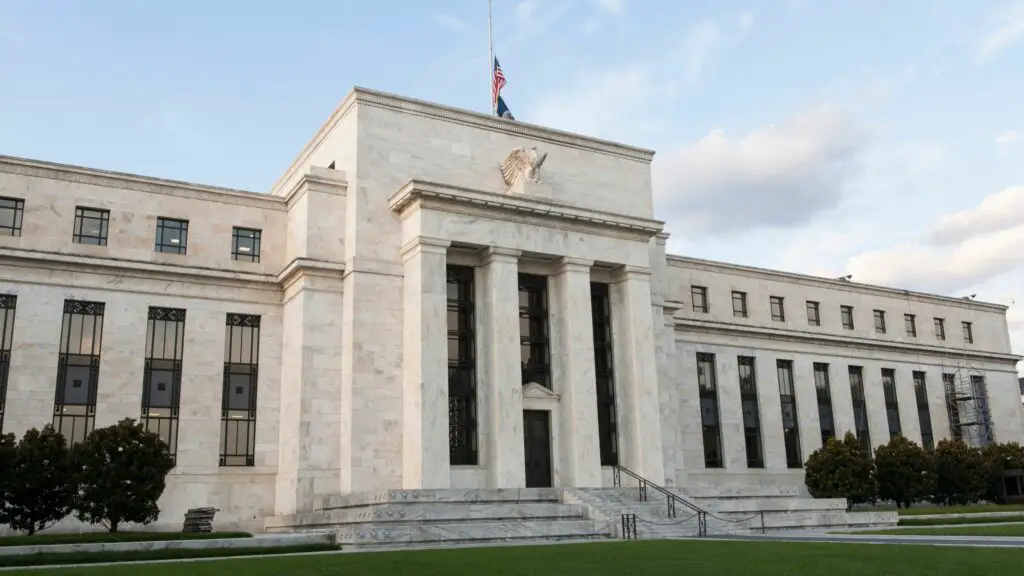The Volcker Rule stops banks from making risky bets that don’t help their customers, keeping your money safe.
In short, the rule says banks can’t gamble with your cash or partner with risky investment funds. Created by Paul Volcker, it’s had some controversy but helps protect our financial system and you, the taxpayer.
Get to know the Volcker Rule and how it impacts your finances in this easy-to-understand guide.
Background and Purpose

The Volcker Rule, part of the Dodd-Frank Act, safeguards the financial system and bank customers. It bans banks from risky trading and investing in hedge funds or private equity funds, reducing risks by separating investment banking from commercial banking activities.
The Volcker Rule stops banks from proprietary trading and using their money for high-risk trades, preventing financial instability like the 2007-2008 crisis. It also limits ties with hedge funds and private equity funds, avoiding conflicts of interest that could harm customers and the financial system.
The Volcker Rule affects many financial institutions like banks and their affiliates. Key enforcers include the Federal Reserve, FDIC, SEC, CFTC, and OCC, ensuring banks follow the rule and maintain a stable financial environment.
Key Provisions
The key provisions of the Volcker Rule include the following:
- Prohibition of proprietary trading: Banks are restricted from trading for their own profit, separate from their clients’ interests. This prevents banks from taking excessive risks with their own capital.
- Restrictions on hedge fund and private equity fund involvement: Banks cannot invest in, sponsor, or maintain certain relationships with hedge funds or private equity funds. This limits banks’ exposure to high-risk investments.
- Compliance program requirements: Banks must establish an internal compliance program to ensure adherence to the Volcker Rule. This includes setting up policies, procedures, and controls to monitor trading activities and fund investments.
- Reporting and record-keeping obligations: Banks must regularly report their trading activities and maintain records to demonstrate compliance with the rule, allowing regulators to monitor and enforce the restrictions.
- Exemptions and exclusions: The Volcker Rule exempts certain activities, such as market making, underwriting, and risk-mitigating hedging. These activities are considered essential for the normal functioning of the financial system and are allowed under specific conditions.
Effects on Financial Institutions
Let’s break down how it affects financial institutions:
- Less risky bets: Banks can’t gamble with their own money anymore. This means they’ll focus more on helping you, their customer, and be safer with your money.
- No more playing with hedge funds: Banks can’t hang out with those risky investment funds called hedge funds or private equity funds. This keeps banks away from trouble.
- Keeping an eye on things: Banks need a “rule-following” team to ensure they play by the rules. They’ll watch what the bank does and keep things in check.
- Telling the teacher: Banks must report what they do to the people in charge. This way, the grown-ups can ensure banks are doing the right thing.
- Some wiggle room: Banks can still do a few important things to keep the money world running smoothly as long as they follow the rules and don’t go overboard.
So, the Volcker Rule helps banks stay safe and focused on helping you with your money. Pretty cool, huh?

Controversies and Criticisms
Want to know what people argue about when it comes to the Volcker Rule?
- Too much homework: Some say the Volcker Rule makes banks do too much work to prove they follow the rules. This can slow things down and cost banks money.
- Stopping the fun: Critics think the rule takes away some cool ways banks used to make money. They worry banks might not be as creative or profitable as before.
- Rules aren’t clear: Some folks believe the Volcker Rule is confusing, like a really tough math problem. They want the rules to be simpler and easier to understand.
- Good banks suffer, too: A few people think the rule is too strict, and even well-behaved banks get punished. They feel some banks should be allowed to do more of what they used to.
So, there are different opinions about the Volcker Rule. Some people think it’s great, while others believe it could be better. What do you think?
Volker Rule Developments
Here are a few recent developments surrounding the Volcker Rule:
- Rule simplification: In June 2020, the Federal Reserve and other financial regulators approved amendments to simplify the Volcker Rule. These changes aimed to clarify and reduce compliance burdens for banks, especially smaller ones, while preventing excessive risk-taking.
- Easing of restrictions: The amendments also eased some restrictions on banks’ investments in hedge funds and private equity funds, allowing them to take a more active role in such funds under certain conditions.
- Tailoring compliance: The revisions to the rule introduced a tiered compliance framework, making it easier for banks with less trading activity to comply with the regulation.
The Bottom Line
So, the Volcker Rule helps keep banks from making risky bets and getting too close to hedge funds. Its main job is to keep our money safe and stop banking disasters from happening again.
Some people argue about the rule, thinking it could be better or weaker. But it’s done a lot to fix the money world since the big 2008 mess.
Ultimately, the Volcker Rule is important for keeping our money secure. We need to keep an eye on it and make sure it works well for everyone.